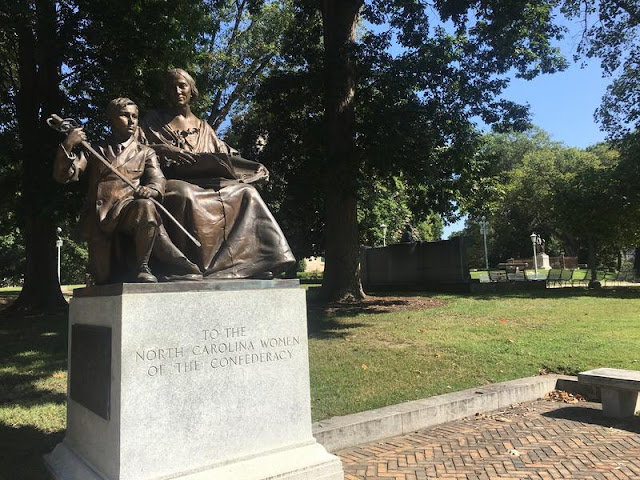Reforming the Reformation - 500 Year Anniversary (Reformation Blog #6)
Today was THE OFFICIAL DAY the 500th anniversary of the day that Martin Luther nailed his 95 theses to the door of the Whittenberg chapel. It was also the most extensive full-day of the conference. So, much of today has been about acknowledging that 500th anniversary by reflecting on what the church should be focusing on now. We have spent the majority of the day in a conference hall listening to one speaker after the other.
On the schedule today were sixteen speakers:
Doug Small
Samson Ayokunle
Poncho Murguia
Jo Anne Lyon
Johannes Justus
Leon Fontaine
Suliasi Kurulo
Doug Beacham
Gustavo Crocker
Lazarus Yeghnazar
Byoungho Zoh
Alex Mitala
David Sobrepena
James O. Davis
Peter Wenz
Leonard Sweet
I think I most enjoyed hearing from Jo Anne Lyon, Johannes Justus, Doug Beacham and Peter Wenz. These four speakers had studied Luther and were able to educate us on aspects of the reformation in a way that helped us be able to reflect more thoughtfully on the past and the future. All of the speakers brought something valuable but these four were the cream of the crop for me.
Jo Anne Lyon is former general superintendent of the Wesleyan Church (a denomination). She continues to serve as an ambassador of their church while overseeing other ministries. Her focus was on intercession. After reflecting on some of Martin Luther's remarks regarding prayer, she led everyone through The Lord's Prayer, by breaking it into five segments and encouraging corporate prayer. She finished her remarks by encouraging all present to be devout in clinging to God by telling the story of the death of Martin Luther's wife, Katherine Von Bora whose dying words were, "I will cling to my Lord Christ as a burr to a coat."
Doug Beacham is bishop of the International Pentecostal Holiness Church. He spoke on "Reformation Networking for Global Impact" and did an amazing job of going through key historical moments and helping us consider how to reflect on them to employ convergent synergistic approaches to ministry now. He slipped in some really important points. I wanted to shout out, "That's my bishop!" But, I managed to hold it down.
Video footage is no longer available but you can read his sermon here:
http://iphc.org/gso/2017/11/17/reformation-networking-global-impact-convergent-synergy/
Video footage is no longer available but you can read his sermon here:
http://iphc.org/gso/2017/11/17/reformation-networking-global-impact-convergent-synergy/
 |
| Bishop Dr. Doug Beacham speaking. |
Peter Wenz was the last speaker of the night. He also pastors a church in Germany and believes that the nation is already experiencing a new type of reformation due to the massive influx of muslim refugees that have been welcomed into the country over the last two years. He spoke on "Teams: Releasing History Makers" and also did a great job of drawing connections between the group (team) of people who were a support to Luther and how "teams" in the lives of present day leaders are also important.
If anyone would like more information on any of these lectures, (including the ones I did not write about) let me know and I will be happy to share my personal notes with you.
If anyone would like more information on any of these lectures, (including the ones I did not write about) let me know and I will be happy to share my personal notes with you.
Today, I developed a better understanding of what the vision of the Global Church Network is about. This group is ecumenical and their focus is on working together to fulfill the great commission through synergistic efforts. That can mean raising money to fund Bible translations. It can mean sharing ideas. It can mean training for ministry. It can mean equipping pastors and leaders. It can mean providing people with opportunities to network but it is all for the purpose of pushing the church towards reaching unreached people groups.
My greatest memory of today will be that I have been blessed with what I call, “divine connections.” What I mean is that I have been given opportunity to meet some amazing people both inside my denomination and outside of it. Even better than that, I was able to sit down and have good conversation with them in a way that allowed me to truly connect and network. I am very thankful for that. I think it has been an important day.
 |
| All the IPHC people who are present for the congress. |
One other speaker who really made an impression on me today was Gustavo Crocker. This man took on the task of asking and attempting to answer a difficult question. The question was, "If the reformation spawned so many denominations, is that good or bad and what are we to do about it now?" He came to the conclusion that just as there were twelve tribes of Israel who each had a role to fill, the denominations have different roles to fill and they should discern and embrace their role but come together to obey God like the Israelites came together to cross the Red Sea and conquer Jericho.
Later, as Chip and I walked down to the Mall of Berlin, I saw this plaque on the ground in front of the escalator, quoting Ghandi. I thought of how the Angels proclaimed, “Peace on earth!” when Jesus was born. He is our peace. He is the way. What if the denominations were in peace with each other more often than they are in conflict? What if the many different denominations and organizations that are present at the conference really came together on the local level to create ministry synergism in towns and cities across the world? What of they cooperated and collaborated with one another more than they competed with one another to reach and minister to the people of their communities? Wouldn't that be a reformation?








